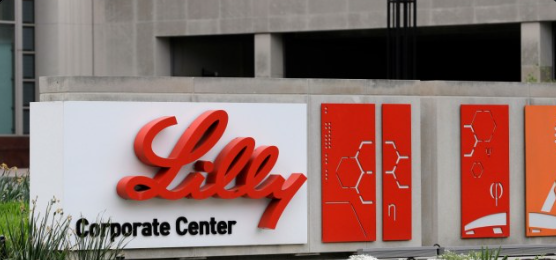On Monday, an FDA panel unanimously voted in favor of recommending Eli Lilly’s early-stage Alzheimer’s treatment, donanemab, for approval. This monoclonal antibody drug, administered intravenously on a monthly basis for up to 18 months, could become the second Alzheimer’s treatment available if the FDA decides to approve it. It’s important to note, however, that the FDA is not obligated to follow the recommendations of the panel.
Breaking News: A panel of experts recommended that the FDA approve the newest experimental drug to treat Alzheimer’s disease, donanemab, made by Eli Lilly.https://t.co/oHRuNP7jgE
— The New York Times (@nytimes) June 10, 2024
During the review session, the panel deliberated on several key issues including the safety of donanemab, given the number of deaths reported during its clinical trials. There was also discussion on whether the drug should be limited to specific subgroups of patients. The clinical trials for donanemab focused on its efficacy in reducing beta-amyloid plaque buildup—a hallmark of dementia. Results indicated a significant 35% deceleration in the disease’s progression over 18 months among patients aged between 60 and 85.
A federal advisory panel voted in favor of recommending Eli Lilly’s new drug that is under consideration for its potential to slow the progression of Alzheimer’s disease. https://t.co/2aMcJLp9JE
— The Hill (@thehill) June 10, 2024
Currently, the only other Alzheimer’s drug available is Leqembi, developed by Eisai and Biogen. Leqembi, also designed to slow the progression of the disease, has been shown to reduce disease advancement by 27% over an 18-month treatment period. However, the drug has faced hurdles in gaining traction, partly due to stringent Medicare regulations that include requirements for costly brain scans and ongoing skepticism about its efficacy from the medical community. Medicare has projected that spending on Alzheimer’s drugs could reach $3.5 billion by 2025. There were concerns about adverse events in 21% of patients treated with Leqembi, echoing issues from its predecessor, which had a problematic launch and was subsequently withdrawn from the market.
The FDA just unanimously agreed that the $LLY drug is affective. The panel votes 11-0 to support Eli Lilly’s Alzheimer’s drug donanemab. pic.twitter.com/6JtgDFYtzo
— Antoine Cureton | Investment Strategist (@Solidified) June 10, 2024
In a related move, Eisai sought FDA approval for an injectable version of Leqembi to facilitate easier access for patients. Moreover, Eisai has filed for the extension of the IV version’s use beyond the initial 18-month treatment, aiming to provide longer-term support against the disease’s progression. The FDA accepted this application and is expected to make a decision by January 2025.
The approval timeline for Lilly’s donanemab, originally projected for the end of the first quarter, has experienced delays, with no updated timeline provided by the FDA for a final decision. This comes as the agency continues to assess the implications of the new treatment option, considering the panel’s recommendations and the need for careful evaluation of its safety and efficacy.
- An FDA panel voted unanimously to recommend Eli Lilly’s Alzheimer’s drug, donanemab, which is administered monthly via IV for up to 18 months.
- Donanemab targets the reduction of beta-amyloid plaque in Alzheimer’s patients and showed a 35% reduction in disease progression.
- Concerns were raised during the panel discussion about safety due to several deaths reported during the drug’s trial.
- The only other Alzheimer’s drug on the market, Eisai and Biogen’s Leqembi, has faced challenges with Medicare rules and skepticism from doctors.
- Eisai has requested FDA approval for extended use of Leqembi, with a decision expected by January 2025; meanwhile, the approval timeline for donanemab has been delayed with no new date set by the FDA.
Kirk Volo – Reprinted with permission of Whatfinger News



